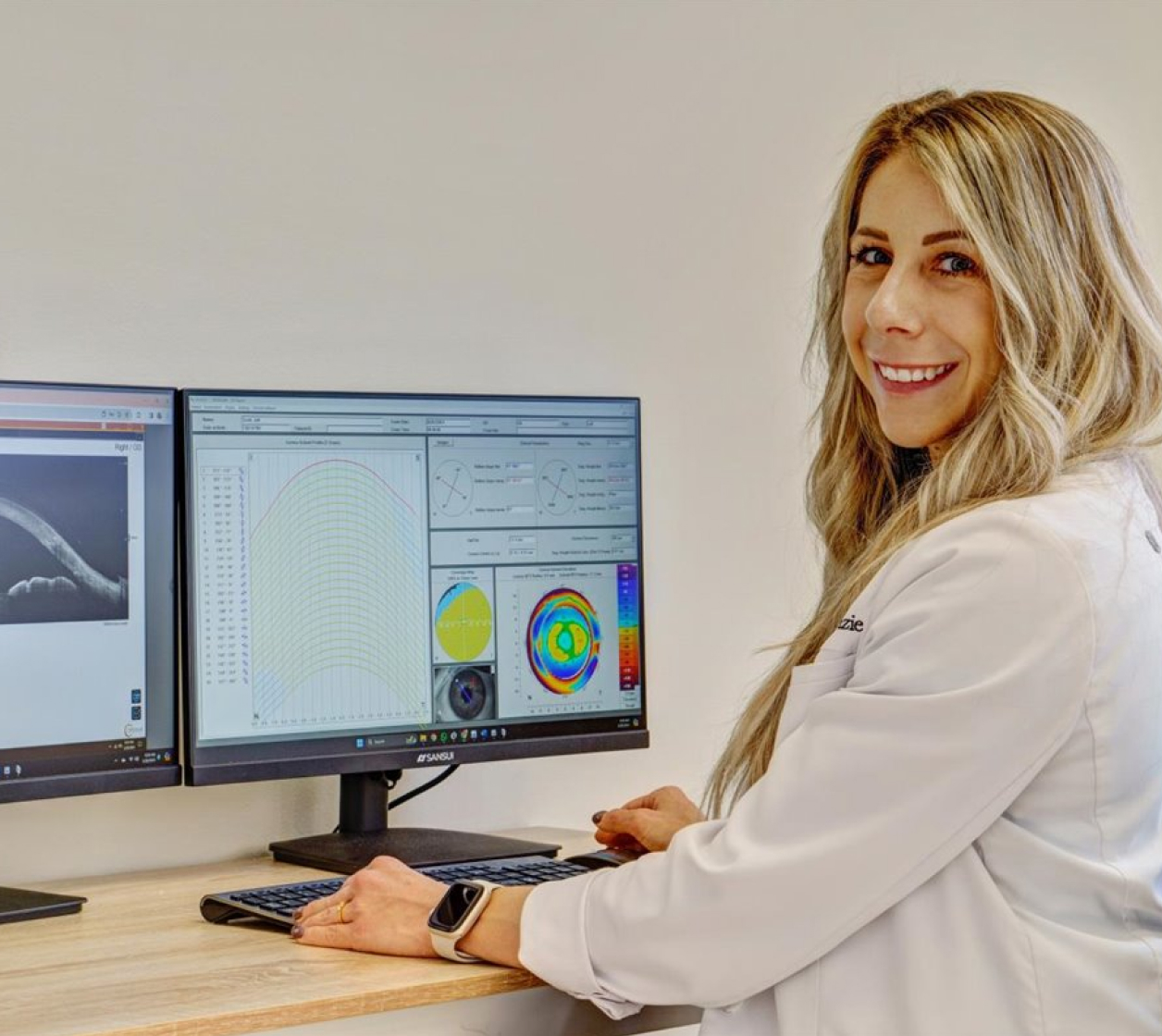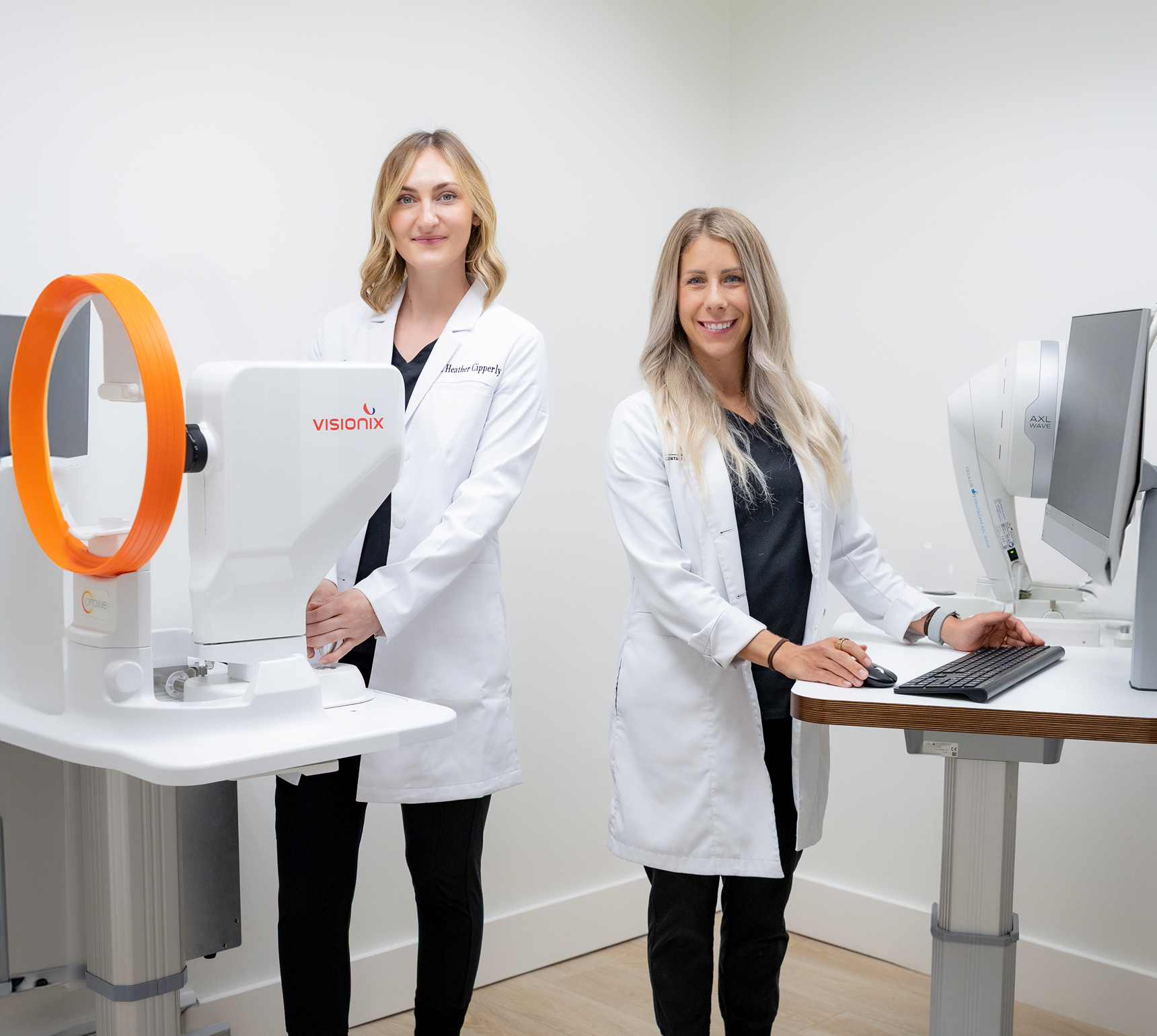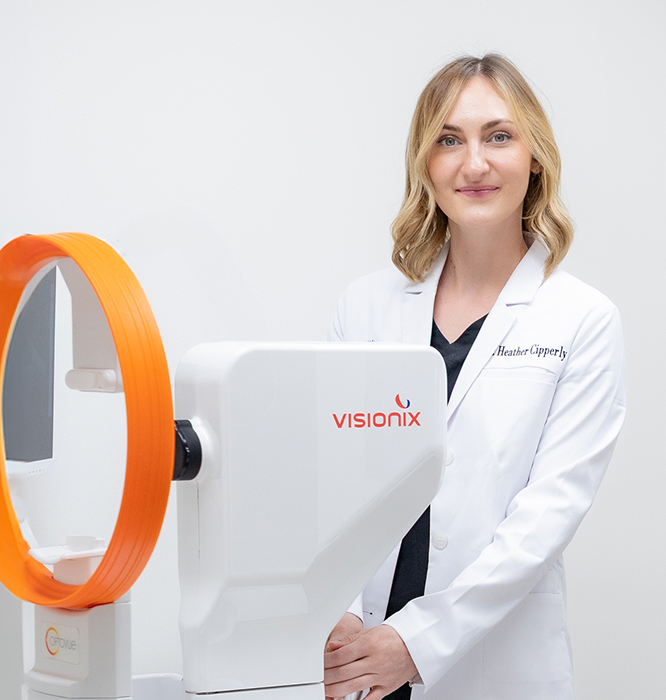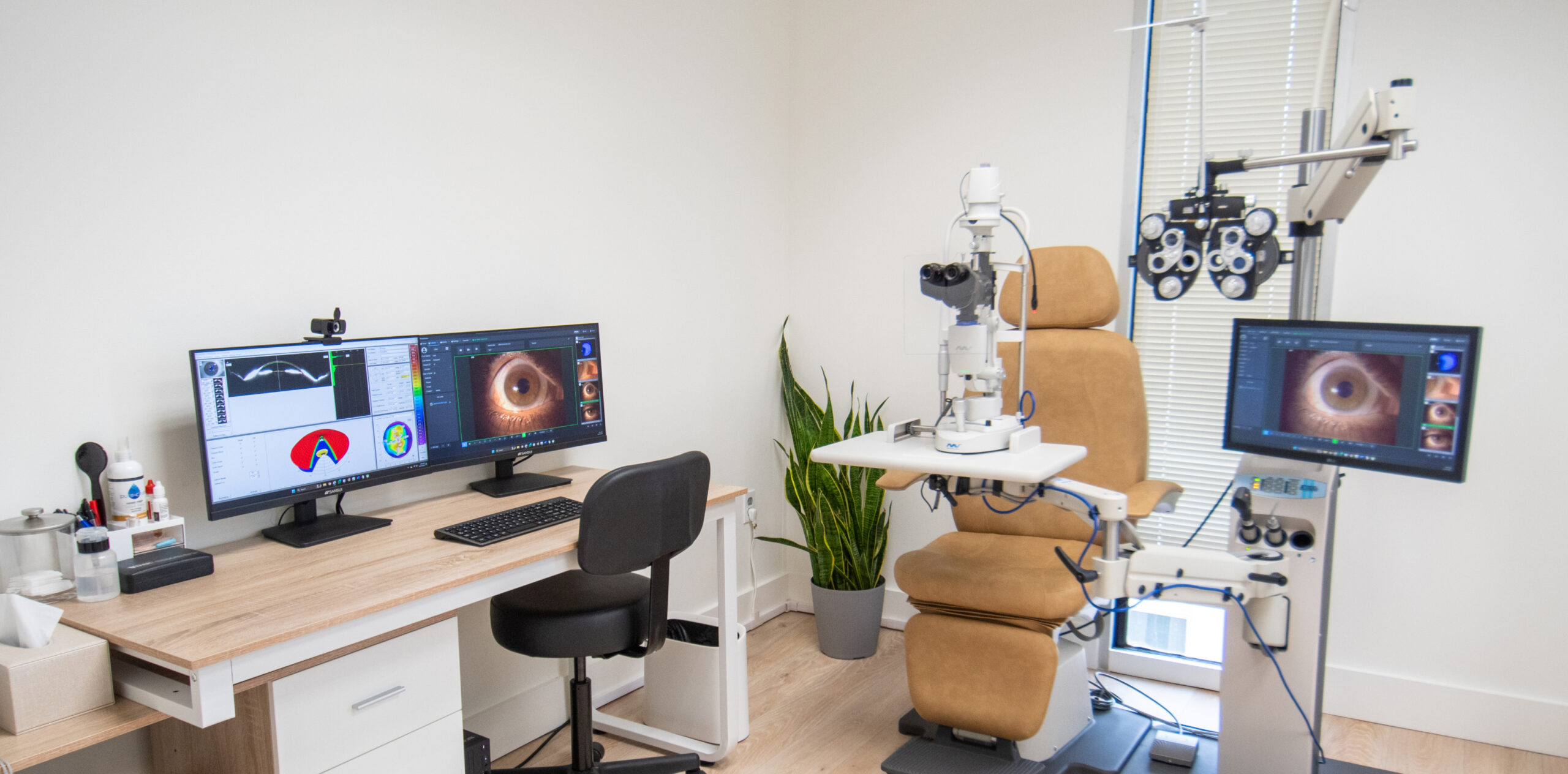
What Happens During a Specialty Contact Lens Fitting
If you’ve ever been told you’re not a candidate for regular contact lenses or that your eyes are “hard to fit,” it can feel discouraging. Many patients think they’re out of options. But specialty contact lenses are different — and so is the care you’ll receive at the Charlotte Contact Lens Institute.
Unlike a routine eye exam, our process is highly personalized, technology-driven, and focused on restoring clarity and comfort for even the most complex cases. Here’s what you can expect during your fitting, and why patients travel from across North Carolina (and beyond) for this one-on-one experience.
- Step 1: A 2-Hour Comprehensive Evaluation
A standard eye exam may last just 15–20 minutes, but your specialty lens fitting with us typically takes around 2 hours. This time allows us to:
- Review your full medical and visual history
- Perform advanced diagnostic imaging
- Carefully evaluate how your eyes interact with potential lenses
Unlike traditional settings, your entire visit is led by a doctor — not passed between technicians. The experience is comfortable, unhurried, and collaborative. You’re encouraged to ask questions and be actively involved in the process.


- Step 2: High-Tech Imaging with 240,000+ Data Points
- Scleral topography/profilometry – precisely maps the shape of your sclera and cornea, providing full corneal tomography, elevation data, and higher-order aberrations.
- Ovitz Wavefront aberrometry – reveals subtle distortions in your vision that glasses and standard lenses cannot correct.
- Step 3: Custom Lens Evaluation — Built Just for You
- Vault corneal irregularities with precision
- Relieve pressure points for improved comfort
- Optimize optical zones for sharper night vision
- Step 4: Iteration and Fine-Tuning
Your first trial is just the beginning. Once your custom lenses are manufactured, we expect to refine the fit through 1–2 follow-up visits.
This fine-tuning ensures your lenses deliver the best possible vision, comfort, and stability. Many patients are surprised by how dramatically their sight improves — especially if they’ve struggled with contacts in the past.

- Who Benefits from Specialty Contact Lenses?
- Keratoconus or pellucid marginal degeneration
- Post-LASIK ectasia or post-RK distortions
- Corneal transplants or scarring
- Irregular astigmatism
- Severe dry eye or contact lens intolerance
If you’ve been told “contacts aren’t an option,” specialty lenses may prove otherwise.


- Why It Matters
Most patients spend 4–6 hours of doctor time with us in their first year — a level of care rarely seen in typical eye care settings. This commitment to time, technology, and precision allows us to achieve truly life-changing results.
We don’t rush the process, and we don’t settle for “good enough.” If you’ve been labeled a difficult fit, we’re here to change that.
Proudly serving Charlotte, the Carolinas, and beyond — we invite you to experience a new level of personalized care.